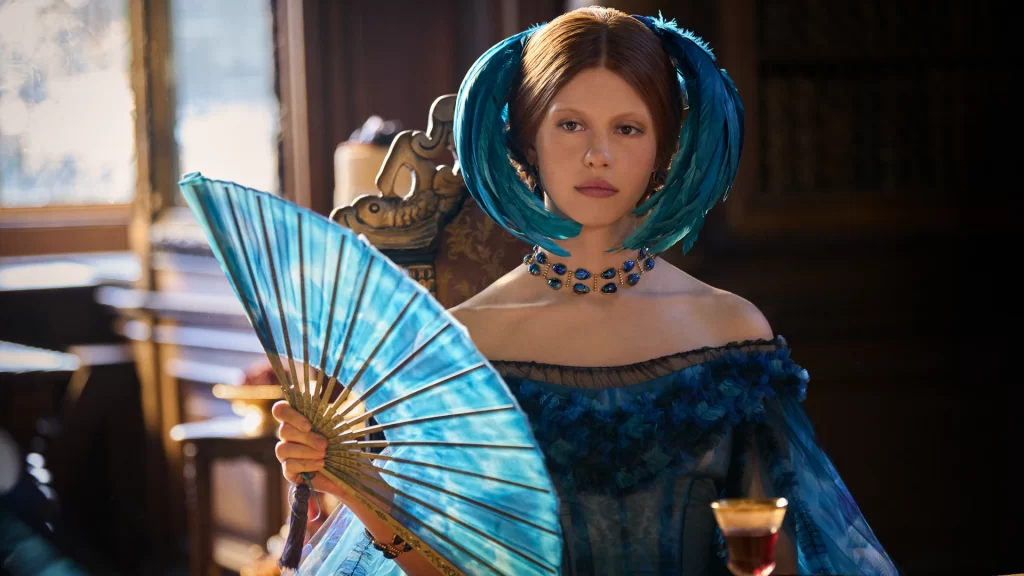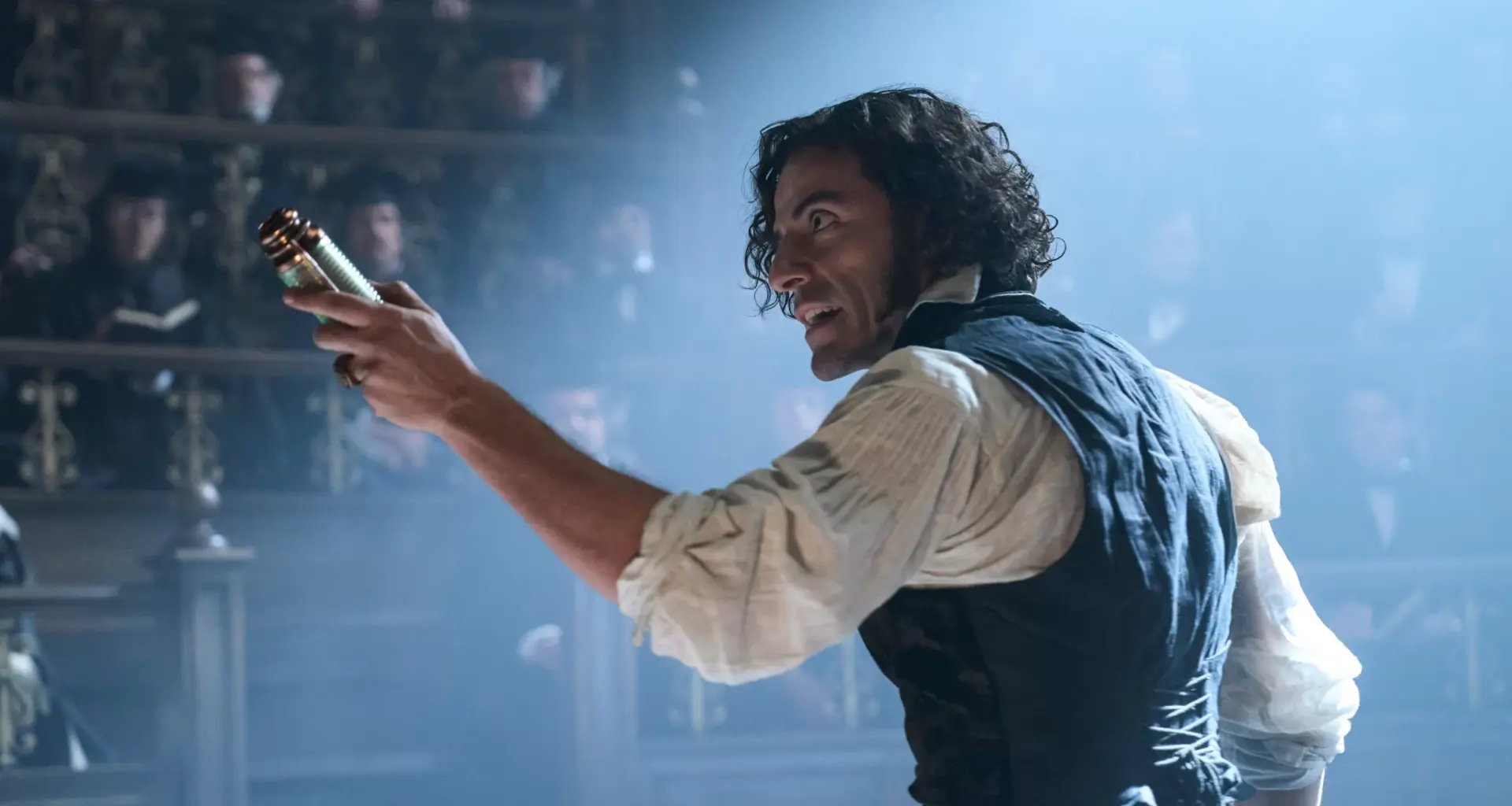“Life and death appeared to me ideal bounds, which I should first break through, and pour a torrent of light into our dark world.” – Mary Shelley, Frankenstein.
Guillermo del Toro’s Frankenstein is at once epic in its scope and intimate in its storytelling. The award-winning auteur lends his one-of-a-kind lens to this brand-new, and fairly faithful, adaptation of Mary Shelley’s literary masterpiece, breathing fresh life into both Dr. Frankenstein and his great creature.
Yes, it is a monster movie in the strictest sense. But there’s far more delivered here than that. del Toro deftly brings each of Shelley’s well-crafted layers to the fore, giving us a deep, yearning lamentation on grief, loneliness and death, and a fulsome speculation on the meaning of life, love and happiness.
Shot in Toronto, the visually stunning feature stars Oscar Isaac as Victor Frankenstein and Jacob Elordi as his otherworldly creation. Unlike many adaptations, del Toro has chosen to include the sequences set in the “farthermost north” that bookend the horror tale so perfectly. By starting at the end and fitting the majority of the film into flashbacks, as the original novel does, the characters are given deeper, more meaningful arcs. We see both Victor and his creature in the fullest possible sense, from birth to their possible (and probable) end.
Isaac embodies the genius and obsession of the Doctor, burning up each and every screen with the need to conquer life and death. He lets the hurt of his past infuse every decision, confusing vengeance and for scientific curiosity and rationalization. His madness creeps up on both the characters and the audience until it’s all encompassing and suffocating. Even the love he thinks he feels for his brother’s fiancee, Elizabeth, (Mia Goth) is more possessive than romantic. She challenges his worldview, his certainty, and his entitlement, and proves the perfect foil to his single-mindedness. It’s entirely satisfying to watch her stay true to herself, in a time where women of any class rarely had that luxury. Her resulting fascination and immediate connection with The Creature, with his gentleness and innocence, is entirely in keeping with her worldview and enchanting to behold.
In a story filled with violence, with grand gestures and ‘sturm und drang,’ it’s these quieter moments that hit the hardest. The kindnesses given to the creature in a demonstrably harsh world. Elizabeth provides him with his first taste of acceptance, and the “Blind Man” gives him his second. David Bradley is perfect as the unquestioning grandfather who brings The Creature in from the cold, and who takes the time to teach him the basics of language, literature and art, plus the building blocks of human emotion. Also turning in impressive supporting performances are the always welcome Christoph Waltz, Lars Mikkelsen,
Felix Kammerer, and Charles Dance.
Which brings us to Elordi as the creation at the centre of it all. It’s no surprise that the young actor has talent to spare, but the work he does here is nothing short of spectacular. From the bombastic moments of his birth to his shy, initial curiosity and from his tentative first feelings to his all-consuming and agonizing despair, he nails it all. His bellows of rage and hurt will sink straight into your bones and send shivers down your spine. This is not the man of Universal creature features, this is one made (literally) of flesh and bone, who feels deeply and lives in extremes–but only because of circumstances beyond his control. Elordi works brilliantly alongside the equally engrossing Isaac, each drawing the best from the other here. There’s not one wasted moment on screen for either, and their performances leave no doubt as to the film’s true monster. But they act as each other’s other halves throughout. The Creature is the light to Victor’s darkness, until the unkindness (and kindness) of the world force a seismic shift in their positions–one that showcases both actors’ ranges to an impressive degree.

There isn’t a single frame that doesn’t speak to the greater picture here, too, and the craftspeople involved are at the top of their collective game. Mike Hill’s Creature design deliberately goes in a different direction than Frankenstein’s of the past, and the result is both beautiful and terrifying. The Creature is imposing, different, but still visibly human, and it makes his mistreatment and suffering at the hands of the world feel somehow more brutal. The Production and Costume Design, Tamara Deverell and Kate Hawley respectively, are so finely tuned to del Toro’s sense of gothic style that it’s hard to picture anything else in their place. Goth’s costumes are breathtaking, and like Victor’s mother’s ensembles earlier in the film, they provide some of the only splashes of colour in the otherwise dark, earthy palette.
Special mention must go to Alexandre Desplat’s score. He matches del Toro’s extravagant strokes brilliantly, but shines just as brightly in the quieter, more introspective moments. The Frankenstein story is all about the duality of life and death, the light and the dark, and there are few contemporary film composers who could do justice to such a juxtaposition of emotional swings.
After the North American premiere this week, del Toro spoke of the timelessness of Shelley’s writing and of this story in particular. “What does it mean to be human in a time of inhumanity, war and in a moment of doubt as a race?” he mused. “That was true back then, and it’s true right now.” And in his cinematic vision of Frankenstein, the filmmaker has given us a film perfect for these depressingly hostile times. But it doesn’t stop there. This Frankenstein also manages to be one for the ages–timeless in both its epic horror and its more intimate hope for humanity’s potential.
Frankenstein screened as part of the 2025 Toronto International Film Festival. Head here to get all our That Shelf TIFF coverage.

